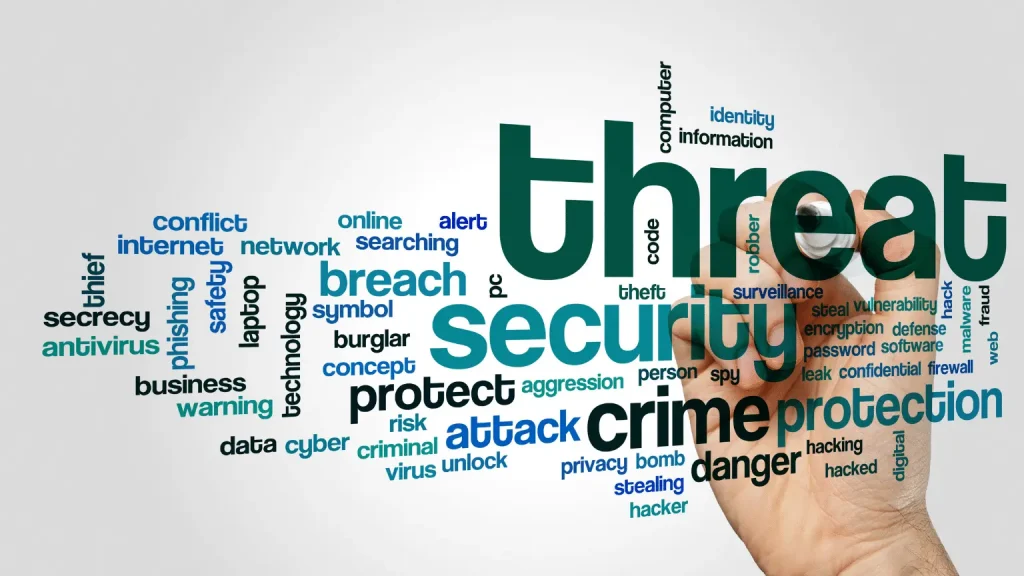Cybersecurity threats continue to escalate, and small businesses have become prime targets for cybercriminals. In fact, according to reports, more than 40% of cyberattacks in recent years have been aimed at small businesses. This alarming statistic highlights how crucial it is for every small business owner to prioritize cybersecurity. The good news is that by implementing the right strategies, you can protect your business and its valuable data from a potential breach. In this blog, we’ll take you through a crash course in cybersecurity for small businesses in 2024, outlining the key risks, real-world examples, and essential protection measures.
Why Cybersecurity is Crucial for Small Businesses
Small businesses often have fewer resources and less robust cybersecurity protocols, making them easy prey for hackers. Many small business owners mistakenly believe that cybercriminals are only interested in large corporations with deep pockets, but this couldn’t be further from the truth. Hackers frequently target small businesses because they tend to have less sophisticated security, which can be exploited for financial gain, stolen data, or even ransomware attacks.
A perfect example is the case of Wyzant, an online marketplace for tutors, which suffered a major data breach in 2020, exposing the personal information of over 2 million customers. While Wyzant is not a small business, this incident sheds light on how even moderate-scale companies can face severe consequences when cybersecurity is compromised.
For small businesses, the cost of such breaches can be devastating. According to a study by IBM, the average cost of a data breach in 2022 was around $4.35 million, and for small businesses, the aftermath of a cyberattack can result in permanent closure due to the financial burden.
Cybersecurity Threats Facing Small Businesses
Understanding the specific types of cybersecurity threats is the first step in protecting your business. Here are some common threats small businesses face:
- Phishing Attacks: These are attempts to trick employees into providing sensitive information, such as passwords or credit card numbers, by posing as a legitimate entity. Phishing emails are getting more sophisticated, and small businesses are often the targets.
- Ransomware: This type of malware encrypts your business’s data, locking you out until a ransom is paid. Small businesses often lack backups and recovery plans, making them more likely to pay the ransom.
- Malware: Malicious software can infiltrate your network through seemingly harmless downloads or phishing emails, giving hackers access to your systems.
- Weak Passwords and Unsecured Networks: A lack of strong password protocols and failure to secure business networks (such as not using firewalls) can lead to easy access for hackers.
Cybersecurity Threats and the Real World
In a recent study conducted by Accenture, it was determined that 43% of all cyberattacks actually target small businesses. Unfortunately, only 14% of those small businesses are equipped to handle such attacks.
To illustrate the seriousness of cybersecurity threats for small businesses, let’s look at this real-world example:
- Colorado Timberline: In 2018, this Denver-based small business specializing in apparel decoration was hit by a ransomware attack. The attack rendered their servers useless, and the company was forced to shut down after being unable to recover.
In an alarming article published by Forbes, it was also mentioned that “the cost of cybercrime is projected to hit an annual $10.5 trillion by 2025”.
Essential Cybersecurity Practices for Small Businesses
If you own a small business, taking action now to secure your business can prevent costly breaches in the future. Here’s a list of fundamental cybersecurity practices you should implement:
- Educate Your Employees: Conduct regular cybersecurity training sessions to make employees aware of phishing scams, malware, and other common tactics used by cybercriminals. They should learn how to identify suspicious emails and avoid clicking on unsafe links.
- Use Strong Passwords and Enable Multi-Factor Authentication (MFA): Ensure that all employees use strong, unique passwords and enable MFA whenever possible.
- Regularly Update Software: Outdated software often contains vulnerabilities that hackers can exploit. Make sure to schedule regular check-ups on your operating systems, applications, and antivirus programs to ensure they are all up to date.
- Back-Up Data Regularly: Make frequent backups of your important business data and store them in secure, offsite locations. This ensures that you can recover your data in case of a ransomware attack or other data loss events.
- Install Firewalls and Antivirus Software: Ensure that your business network is protected by a reliable firewall, and install antivirus software on all business devices.
- Secure Your Wi-Fi Network: Use encryption and secure passwords for your Wi-Fi networks to prevent unauthorized access.
- Develop a Cybersecurity Plan: Have a written cybersecurity policy in place and be prepared with a response plan if a breach does occur.
Getting Started with Cybersecurity Protection
While securing your business may seem overwhelming, starting with the basics can provide essential protection. Once these foundational measures are in place, consider investing in advanced protection services and working with cybersecurity experts to audit and secure your entire system.
Getting started is easier than ever, especially with comprehensive protection plans available for small businesses. Partnering with a reliable cybersecurity provider can give you the peace of mind that your business is protected from potential cyber threats.
Rondesse: Your Cybersecurity Solution
At Rondesse, we understand how critical cybersecurity is for small businesses. Our services are designed to help protect your business from the growing threat of cyberattacks. With 24/7 monitoring, tailored solutions for your business, and expert support, we ensure that your systems remain secure.
Additionally, Rondesse provides the latest in cybersecurity tools, helping businesses safeguard data, detect threats early, and mitigate the damage from any security breaches.
Explore Rondesse for Comprehensive Cybersecurity Protection
Don’t let cybercriminals jeopardize your business. By partnering with Rondesse, you can ensure that your small business is equipped with the best cybersecurity solutions on the market. From 24/7 monitoring to tailored cybersecurity plans, Rondesse is committed to helping your business stay safe.
Explore Rondesse today to protect your business from cyberattacks, safeguard your sensitive information, and ensure that your business thrives securely in 2024 and beyond.





